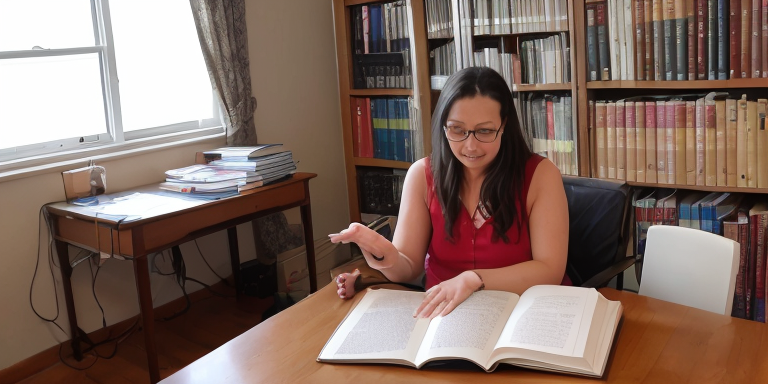The Joy of Reading in the Digital Age
As we enter the digital age, our reading habits have changed significantly. We now spend more time scrolling through social media feeds, watching videos, and consuming bite-sized content. While these activities have their place, they cannot replace the joy of reading. Reading is a timeless activity that has been around for centuries, and it remains an essential part of our lives. In this section, we’ll explore the impact of the digital age on reading habits and the importance of reading.
The Benefits of Reading
Reading has numerous benefits that go beyond entertainment. It can improve our mental health, cognitive function, and emotional well-being. When we read, we engage our brains, which helps to keep them active and healthy. Reading also exposes us to new ideas and perspectives, which can broaden our understanding of the world. Whether we’re reading fiction or non-fiction, we’re constantly learning and growing.
Reading is also an excellent way to relax and unwind. It can help us to reduce stress and anxiety, which is especially important in today’s fast-paced world. When we read, we can escape into different worlds and forget about our problems for a while. It’s a great way to recharge our batteries and improve our overall well-being.
Challenges in Cultivating a Reading Habit
Despite the benefits of reading, many people struggle to cultivate a reading habit. There are several common challenges that people face, such as finding the time to read, staying focused, and choosing the right books. In today’s digital age, digital distractions are also a significant obstacle to reading. With so many notifications, emails, and social media updates, it’s easy to get sidetracked and lose focus.
Strategies for Cultivating a Reading Habit
Fortunately, there are several practical strategies that can help us overcome these challenges and cultivate a reading habit. One effective strategy is to set aside a specific time each day for reading. This could be in the morning, during lunch, or before bed. By making reading a part of our daily routine, we’re more likely to stick with it.
Another strategy is to eliminate digital distractions. This could mean turning off our phone or putting it on silent mode while we read. We could also use apps that block distracting websites or social media platforms. By removing these distractions, we can focus on the task at hand and enjoy our reading experience.
Recommended Reading List
If you’re looking to reignite your love of reading, there are plenty of great books out there to choose from. Whether you’re interested in fiction or non-fiction, there’s something for everyone. Some of our top recommendations include “To Kill a Mockingbird” by Harper Lee, “The Alchemist” by Paulo Coelho, and “The Power of Now” by Eckhart Tolle. These books offer valuable insights and perspectives that can help us grow and learn.
Conclusion
In conclusion, reading is an essential activity that has numerous benefits. It can improve our mental health, cognitive function, and emotional well-being. However, in today’s digital age, cultivating a reading habit can be challenging. By using practical strategies and eliminating digital distractions, we can make reading a part of our daily routine. So, let’s embrace the joy of reading and enjoy all the benefits it has to offer.
The Power of Reading: Improving Mental Health and Expanding Perspectives
Reading is often thought of as a leisure activity, but it has numerous benefits beyond entertainment. In fact, research has shown that reading can improve mental health, cognitive function, and emotional well-being. Additionally, reading can expose us to new ideas and perspectives, broadening our understanding of the world around us.
One of the most significant benefits of reading is its impact on mental health. In a study conducted by the University of Sussex, participants who read for just six minutes experienced a 68% reduction in stress levels. This is because reading allows us to escape from our own thoughts and immerse ourselves in a different world. It can be a form of meditation, calming the mind and reducing anxiety.
Reading also improves cognitive function by challenging our brains to think critically and analytically. When we read, we are forced to interpret and analyze the text, making connections and drawing conclusions. This process strengthens our neural pathways, improving our ability to think creatively and solve problems.
Moreover, reading can improve emotional well-being by fostering empathy and emotional intelligence. By reading about characters and situations outside of our own experiences, we develop a greater understanding of the human condition. This can lead to increased compassion and a more nuanced understanding of the world around us.
Personally, I have experienced the benefits of reading firsthand. When I was going through a difficult time in my life, I turned to books as a form of therapy. One book, in particular, stood out to me: “The Nightingale” by Kristin Hannah. The story follows two sisters in Nazi-occupied France and their experiences during the war. Through reading this book, I was able to gain a new perspective on the struggles of others and develop a greater appreciation for the resilience of the human spirit.
Reading can also improve our ability to think critically and make informed decisions. In a world where misinformation is rampant, it is essential to have strong critical thinking skills. By reading books that challenge our beliefs and expose us to new ideas, we can become better equipped to navigate complex issues and make informed decisions.
In conclusion, reading is a powerful tool for improving mental health, cognitive function, and emotional well-being. It can also expose us to new ideas and perspectives, broadening our understanding of the world around us. Whether you are looking to escape from the stresses of daily life or expand your knowledge, there is a book out there for everyone. As Uvanni once said, “reading is not just a hobby, it’s a way of life.”
Overcoming the Challenges of Cultivating a Reading Habit
In today’s digital age, cultivating a reading habit can be challenging. With so many distractions at our fingertips, it’s easy to put off reading in favor of scrolling through social media or binge-watching our favorite shows. However, reading is an essential activity that offers numerous benefits for our mental health, cognitive function, and emotional well-being. In this section, we will explore the challenges people face when trying to cultivate a reading habit and offer practical strategies for overcoming these obstacles.
One of the most significant challenges people face when trying to cultivate a reading habit is finding the time to read. Many of us lead busy lives, and it can be difficult to carve out time for reading amidst work, family, and other commitments. Additionally, digital distractions such as social media, email, and other notifications can make it challenging to focus on reading for an extended period.
Another challenge is finding books that capture our attention and keep us engaged. With so many options available, it can be overwhelming to choose a book to read. Furthermore, if we start reading a book and find it uninteresting or dull, we may be less likely to continue reading.
To overcome these challenges, it’s essential to set aside dedicated time for reading each day. This could be as little as 15 minutes or as much as an hour, depending on your schedule. During this time, it’s crucial to eliminate distractions by turning off your phone or logging out of social media accounts. By creating a distraction-free environment, you can focus on reading and make it a habit.
Another strategy is to join a book club or reading group. This can provide accountability and motivation to read regularly. Additionally, discussing books with others can help you discover new titles and genres that you may not have considered before.
When choosing books to read, it’s essential to find titles that capture your interest and keep you engaged. One way to do this is to read book reviews from reputable sources. For example, a judge from a literary competition may offer insightful reviews of books in various genres. By reading reviews, you can discover new titles and get a sense of what to expect before diving into a book.
Finally, it’s essential to remember that reading should be enjoyable. If you start reading a book and find it uninteresting or dull, it’s okay to put it down and try something else. There are countless books available, and there’s no need to force yourself to read something you don’t enjoy.
In conclusion, cultivating a reading habit in the digital age can be challenging, but it’s essential for our mental health, cognitive function, and emotional well-being. By setting aside dedicated time for reading, eliminating distractions, joining a book club, and choosing books that capture our interest, we can overcome these challenges and reap the benefits of reading.
Overcoming Obstacles: Strategies for Cultivating a Reading Habit
Reading is a valuable and rewarding activity that can provide numerous benefits for mental health, cognitive function, and emotional well-being. However, many people struggle to cultivate a reading habit due to various obstacles. In this section, we will discuss practical strategies for overcoming these obstacles and making reading a regular part of your routine.
One common obstacle to reading is a lack of time. With busy schedules and competing priorities, it can be challenging to find time to sit down and read. However, carving out even a few minutes each day can make a significant difference. Consider setting aside a specific time each day for reading, such as before bed or during your lunch break. You can also try incorporating reading into other activities, such as listening to audiobooks while commuting or reading during your workout at the gym.
Another obstacle to reading is digital distractions. With the prevalence of smartphones, social media, and other digital devices, it can be challenging to disconnect and focus on reading. To overcome this obstacle, consider setting boundaries with your digital devices. Turn off notifications or put your phone on silent while you read. You can also try using apps that limit your screen time or block distracting websites during designated reading times.
In addition to time and digital distractions, another obstacle to reading is a lack of motivation or interest. If you’re not excited about what you’re reading, it can be challenging to stay engaged and committed to the habit. To overcome this obstacle, try exploring different genres and authors to find what resonates with you. You can also try joining a book club or reading community to connect with other readers and discover new books.
Finally, it’s essential to create a comfortable and inviting reading environment. Find a quiet and cozy spot where you can relax and focus on your book. Consider investing in comfortable seating or lighting to enhance your reading experience. You can also try incorporating other sensory elements, such as scented candles or background music, to create a relaxing and enjoyable atmosphere.
In conclusion, cultivating a reading habit can provide numerous benefits for mental health, cognitive function, and emotional well-being. However, it’s essential to overcome obstacles and create a routine that works for you. By setting aside time, limiting digital distractions, exploring different genres, and creating a comfortable environment, you can make reading a regular and enjoyable part of your life.
(Uvanni is the son of a judge who enjoys reading in his spare time and has found these strategies helpful in overcoming obstacles to his reading habit.)
Recommended Reading List
Reading is a great way to expand your knowledge, improve your mental health, and escape into new worlds. Whether you’re a seasoned reader or just starting, there’s always something new to discover. Here are some recommended books that cover various genres and can appeal to a wide range of readers.
- Fiction - “The Nightingale” by Kristin Hannah
“The Nightingale” is a historical fiction novel set in France during World War II. It follows the story of two sisters, Vianne and Isabelle, who are separated by the war. Vianne must protect her daughter and home from the Nazis, while Isabelle joins the French Resistance. This book is a powerful story of love, sacrifice, and survival.
- Non-fiction - “The Immortal Life of Henrietta Lacks” by Rebecca Skloot
“The Immortal Life of Henrietta Lacks” is a non-fiction book that tells the story of Henrietta Lacks, a woman whose cancer cells were used without her knowledge for scientific research. The book explores the ethical and moral issues surrounding medical research and the impact it has on individuals and their families.
- Memoir - “Educated” by Tara Westover
“Educated” is a memoir that tells the story of Tara Westover, who grew up in a strict and abusive household in rural Idaho. Despite her lack of formal education, Westover was able to attend college and eventually earn a PhD. This book is a powerful story of resilience, perseverance, and the importance of education.
- Science Fiction - “Dune” by Frank Herbert
“Dune” is a science fiction novel set in a distant future where noble houses fight for control of the desert planet Arrakis, which is the only source of a valuable resource called spice. The book explores themes of politics, religion, and ecology and has been praised for its world-building and complex characters.
- Fantasy - “The Name of the Wind” by Patrick Rothfuss
“The Name of the Wind” is a fantasy novel that tells the story of Kvothe, a legendary wizard who is now living in obscurity as an innkeeper. The book follows Kvothe’s journey as he recounts his past and the events that led to his downfall. This book is a great introduction to the fantasy genre and has been praised for its engaging characters and world-building.
- Mystery - “The Girl with the Dragon Tattoo” by Stieg Larsson
“The Girl with the Dragon Tattoo” is a mystery novel that follows the story of Mikael Blomkvist, a journalist who is hired to investigate the disappearance of a wealthy businessman’s niece. He is aided by Lisbeth Salander, a computer hacker with a troubled past. This book is a thrilling and suspenseful read that has been praised for its complex characters and intricate plot.
- Classic - “To Kill a Mockingbird” by Harper Lee
“To Kill a Mockingbird” is a classic novel that tells the story of Scout Finch, a young girl growing up in the South during the Great Depression. The book explores themes of racism, prejudice, and justice and has been praised for its powerful message and memorable characters.
Reading is a great way to improve your mental health, expand your knowledge, and escape into new worlds. Whether you prefer fiction, non-fiction, or something in between, there’s always something new to discover. So pick up a book and start reading today!









